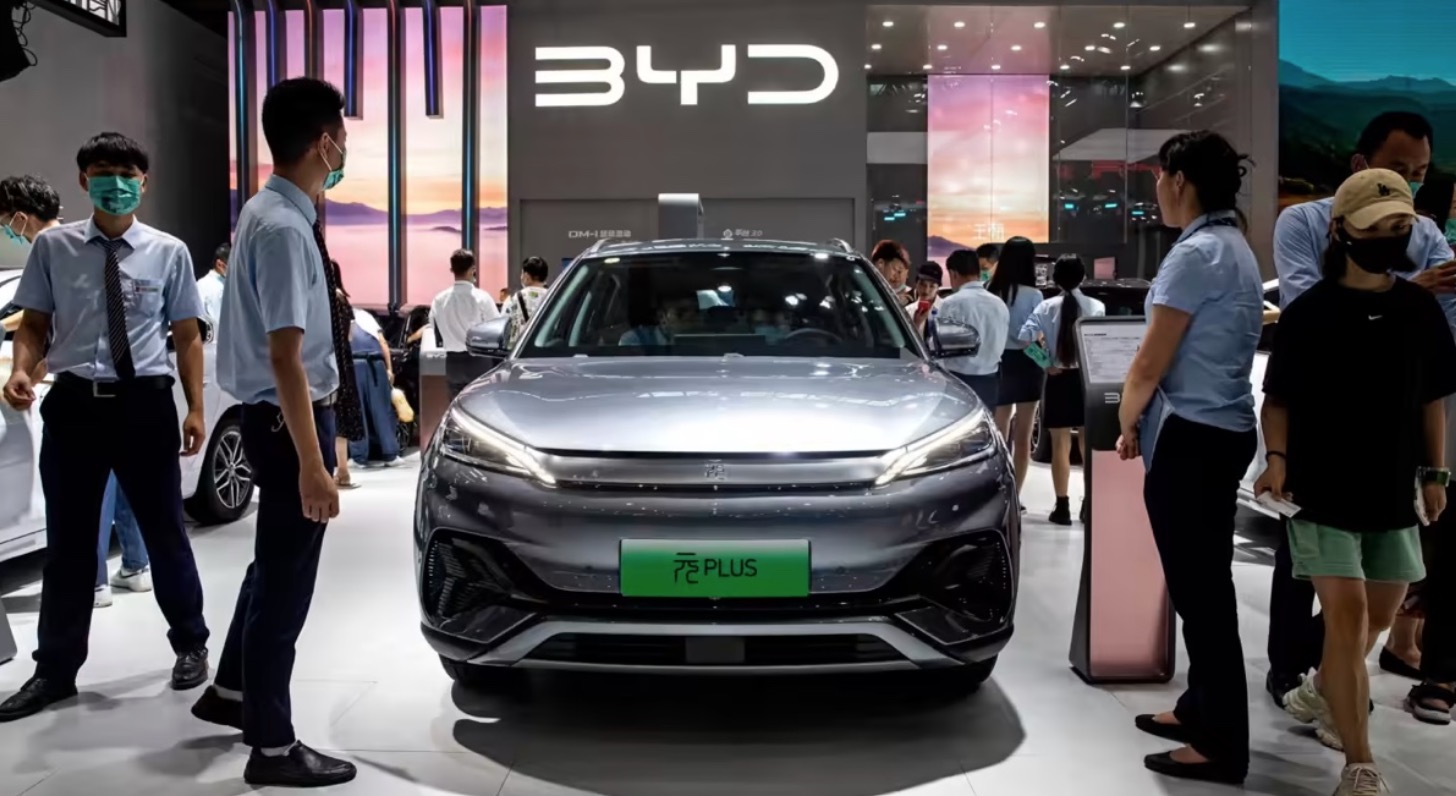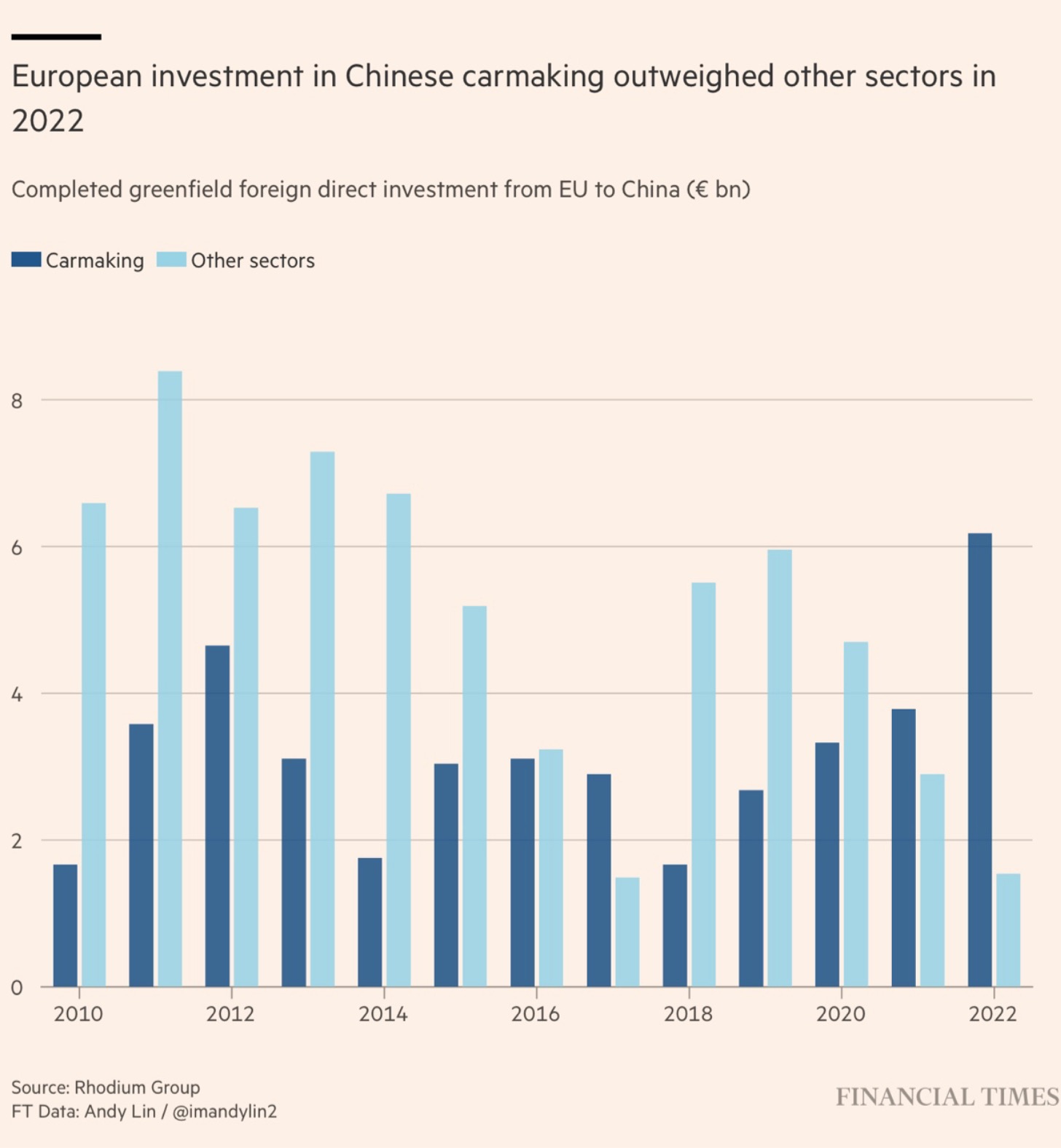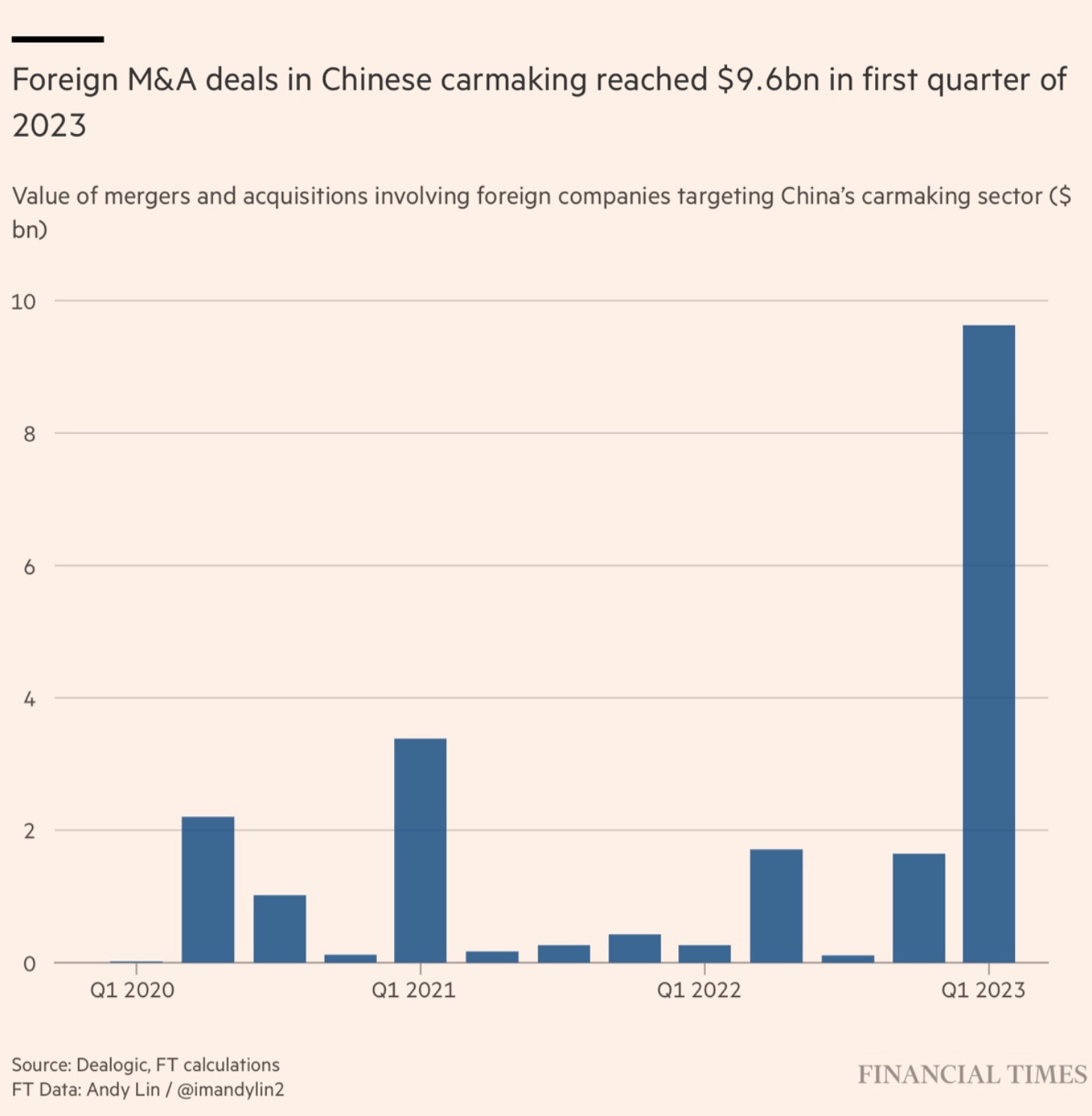08 May The Financial Times : European carmakers play catch-up in China with record investment
Media Source : The Financial Times
03 MAY 2023
Automotive sector dominates foreign financing as companies try to regain market share from domestic rivals

European investment is pouring into China’s car market, the largest in the world and where eight of the 10 bestselling electric vehicles this year were by Chinese brands such as BYD © Getty Images
By Edward White in Seoul
European investment in China’s car sector has hit a record high as companies try to claw back market share from ascendant Chinese electric-vehicle makers.
Direct European investment in China’s automotive sector reached €6.2bn last year, while investment in all other sectors totalled €1.5bn, according to data from Rhodium, a US research group.
That marks a stark change from 2018, when the car industry total was €1.7bn, compared with €5.5bn in other sectors. Last year’s jump also reflected in part BMW raising its stake in its Chinese joint venture.
The surge highlights how the automotive sector has come to dominate European investment in China, despite deteriorating ties between foreign governments and Beijing as well as heightened scrutiny of foreign businesses in China.
European Commission president Ursula von der Leyen in March unveiled a tougher stance on China as part of a “de-risking” strategy, signalling tighter restrictions on trade in sensitive technologies.

Foreign companies are trying to defend their market share in China, the world’s largest car market. Capital market deals targeting the Chinese automotive sector involving foreign companies, including US ones, totalled $9.6bn in the first quarter of 2023, according to Dealogic data, which includes mergers and acquisitions, equity purchases and pending deals.
However, analysts caution that the foreign spending spree does not guarantee that legacy carmakers such as Volkswagen, Ford, General Motors and Toyota can claw back lost ground. Chinese companies, backed by state subsidies and vertically integrated supply chains, have stolen a march on foreign rivals.
“Investments are necessary if you are going to stay in the game, but they are not sufficient for you to win that game. It really requires a rethink of your whole business model,” said Bill Russo, founder of Shanghaibased consultancy Automobility and the former head of Chrysler in China.
Ola Källenius, chief executive of Mercedes-Benz, told a German newspaper on Sunday that cutting ties with China would be “unthinkable for almost all of German industry”.

The Rhodium data does not include US foreign direct investment, Volkswagen’s investment of €2.4bn in Chinese chip design company Horizon Robotics, announced in October, or the German carmaker’s plan to spend €1bn on an innovation centre in China, announced in April.
Foreign groups, led by German, Japanese and US brands, accounted for nearly two-thirds of car sales in China five years ago. That share has eroded to about half.
While China remains one of the largest profit contributors for many international carmakers, homegrown producers are increasingly dominant in the electric-vehicle category.
Eight of the top 10 electric models sold in China this year are Chinese brands, according to data from Automobility.
BYD, the clear market leader backed by Warren Buffett, notched 80 per cent sales growth in the first three months of this year compared with the first quarter of 2022, taking a 39 per cent market share.
SOURCE: https://www.ft.com/content/aa3472f2-c8d5-4a80-8a24-5b6b7c2fd7bc



Sorry, the comment form is closed at this time.